Mental Health at the Margins
1 April 2008
Links:
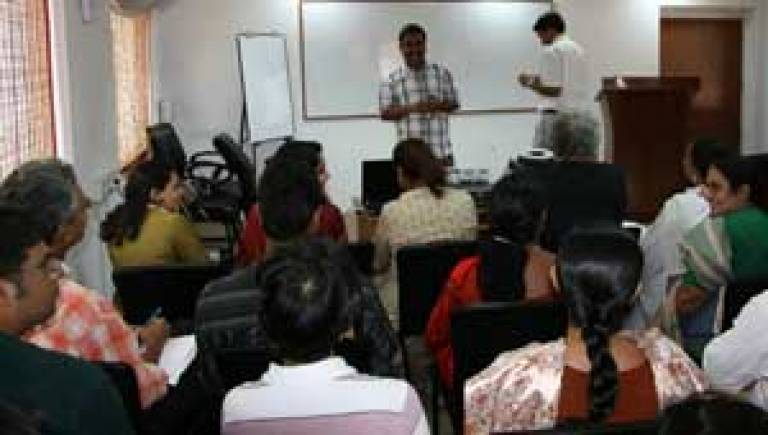 icn.ucl.ac.uk/Staff-Lists/MemberDetails.php?Title=Dr&FirstName=Sushrut&LastName=Jadhav" target="_self">Dr Jadhav
icn.ucl.ac.uk/Staff-Lists/MemberDetails.php?Title=Dr&FirstName=Sushrut&LastName=Jadhav" target="_self">Dr Jadhav
Dr Sushrut Jadhav (UCL Centre for Behavioural and Social Sciences in Medicine) has established a unique short course for mental health professionals in collaboration with the Banyan Academy of Leadership in Mental Health, Chennai, India.
The course, entitled 'Mental Health at the Margins', addressed challenges relating to the treatment of marginal groups with mental health problems in the Indian setting.
The nature of marginal groups differs depending on the circumstances - marginality can be spatial, geographical, cultural and psychological - it can encompass religion, caste, gender, class and politics. Marginal groups arise in all settings across cultures, and are usually subject to poverty, violence, debt and stigma, and as a result, inadequate healthcare provision, social services and education.
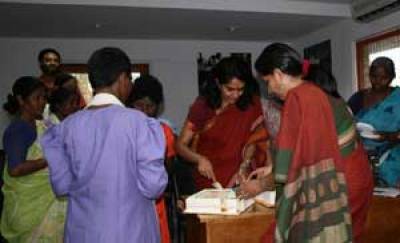
The Banyan is an NGO based in Chennai that runs a 65-bed hostel established to treat and rehabilitate homeless women with mental illness, most of whom have been found abandoned on the streets in extreme distress. These women have been victims of crime, disease and poverty. The Banyan's aim is to re-introduce these women to society and their families by equipping them with business and craft skills, providing them with a livelihood, and most importantly, dignity and independence.
Their success is illustrated in the results - 850 patients have been successfully reunited with their families, while the remainder work in the Banyan café and creative workshop. The previous president of India, Dr APJ Abdul Kalam, stated his desire for a Banyan centre in every Indian city. The Banyan's objective is to produce scalable and replicable models for the greatest social impact.
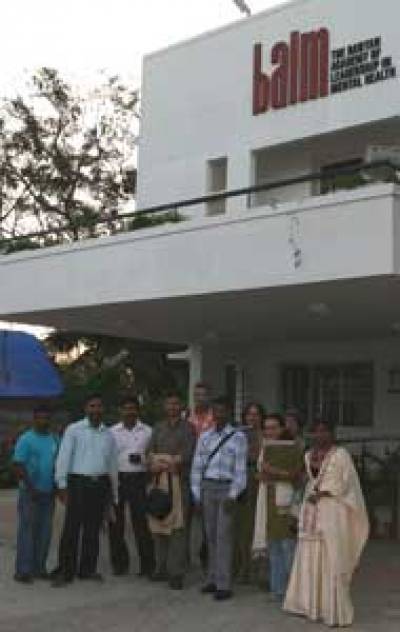
The Banyan Academy of Leadership in Mental Health offers training for health professionals and based near the Banyan's protected community in Kovalam, a fishing village near Chennai.
Dr Jadhav became involved at the request of BALM, which is keen to search for innovative solutions and new perspectives on tackling much-needed mental health care reform, and utilising Dr Jadhav's expertise in cross-cultural mental health from an anthropological background. Seed funding from UCL Vice Provost (Academic & International), Professor Michael Worton, and extensive dialogues between UCL and Banyan including several exchange visits and a Memorandum of Understanding, made this North-South collaboration a reality.
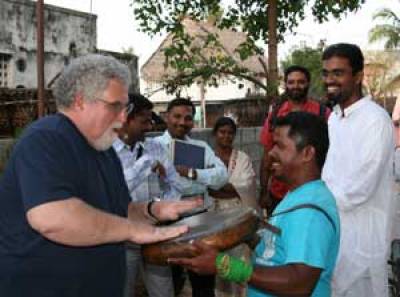
Dr Jadhav has worked with patients from social and cultural margins throughout his professional career, and is particularly interested in training and equipping health professionals with the skills to be culturally sensitive for the benefit of the patients, and learn to critique existing official theories of mental health.
The first joint UCL- BALM course took place at BALM, Kovalam, in February 2008 as an introduction to the broad definition and understanding of theory and practice related to mental health and marginality from both Western and South Asian perspectives. Participants from Australia, India, Europe, and Pakistan came with their own clinical case studies, and were asked to re-evaluate how they would deal with their patient in relation to what they had learned. In particular, participants learnt how their own cultural position and often popular social institutions generated their patient's suffering.
The course was directed by Dr Jadhav and led by a team of UCL clinical anthropologists Professor Roland Littlewood, Dr Jane Derges and Mr Sumeet Jain, together with BALM professionals. Despite a modest course fee of £40, several students were so committed to attending that they took leave of their university studies and took on part-time work in order to pay for the course.
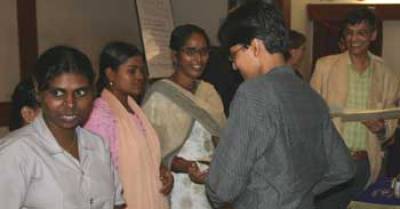
"Marginality is not just an issue for low income countries - we have probably all experienced some aspects of marginality - it just depends what it is in relation to," says Dr Jadhav. "To understand the margins, we must understand what's going on at the centre. Policies can generate marginality and the consequences can be far-reaching from the stroke of a pen. The Banyan has, until now, been carrying out its work without the opportunity to theorise. It's very interesting to learn from their approach and compare it to outcomes from standard care provided by psychiatric hospitals. Next, we will run an advanced course at BALM campus from 3-6 November 2008 on the encounter between Indian Psychiatry and Medical Anthropology. The objective of this innovative course is to enable participants to gain a comprehensive understanding on the limitations of current theory and practice of mental health in South Asia, equip them with a critique of mental health theory and practice, and conceptualise alternative frameworks for mental health in the region. In parallel, we will establish a jointly directed UCL-BALM academic research unit at the Banyan in April 2008, for investigating social suffering in India."
To find out more, use the links at the top of this article
Image 1: During teaching
Image 2: Sharing a cake made and presented by women in Banyan care
Image 3: Outside the academy
Image 4: Professor Littlewood provides the entertainment
Image 5: Attendees receive their certificates from Banyan women and Dr Jadhav (far right)
 Close
Close

